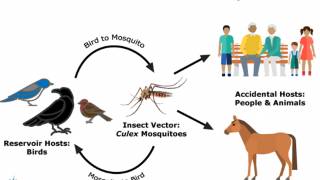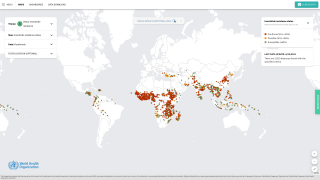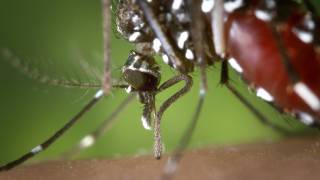West Nile Virus Returns to Greece

During 2017, the West Nile virus returned to Greece after a 2-year hiatus.
And, these West Nile Virus (WNV) cases emerged in the southern territories of Greece, which has not previously reported WNV cases, according to findings presented at the 28th European Congress of Clinical Microbiology and Infectious Diseases (ECCMID).
The first outbreak of West Nile in Greece was recorded in 2010 and was considered to be the largest epidemic in Europe since 1996.
A total of 197 patients with the neuroinvasive disease were reported in 2010, of whom 33 (17%) died.
Most outbreaks in western Europe have been caused by WNV Lineage 1. However, in eastern Europe, Lineage 2 has been responsible for human and bird mortality, particularly in Greece.
Professor Athanassios Tsakris, head of the Microbiology Department at the University of Athens Medical School, and his team of researchers diagnosed 45 cases from blood samples.
Twenty-six patients, or 57.8% of the new cases, were diagnosed with WNV neuroinvasive disease while the remaining 19 patients, or 42.2%, were determined to have WNV fever.
The five patients who died during this latest outbreak were over the age of 70.
WNV was first isolated in the West Nile District of Uganda in 1937. The disease was carried by mosquito-infected migratory birds from Africa, spreading the virus through Europe and into Russia.
Although some infected birds, especially crows and jays, frequently die of infection, most birds survive.
West Nile reached North America in 1999 and has been detected in over 300 species of dead birds.
As of January 9, 2018, 47 states and the District of Columbia have reported 2,002 West Nile virus infections to the Centers for Disease Control and Prevention (CDC) in 2017.
Of these, 67 percent were classified as neuroinvasive diseases, such as meningitis or encephalitis. The case fatality rate in patients with neuroinvasive illness ranges from 4% to 14% and can reach 15–29% in patients over 70 years old.
Since there is not a vaccine or medicine that prevents West Nile virus, the best way to protect yourself is by preventing mosquito bites, says the CDC.
Our Trust Standards: Medical Advisory Committee


























